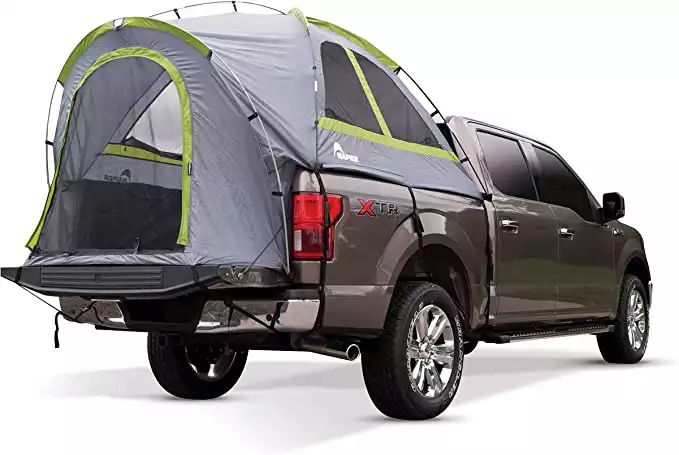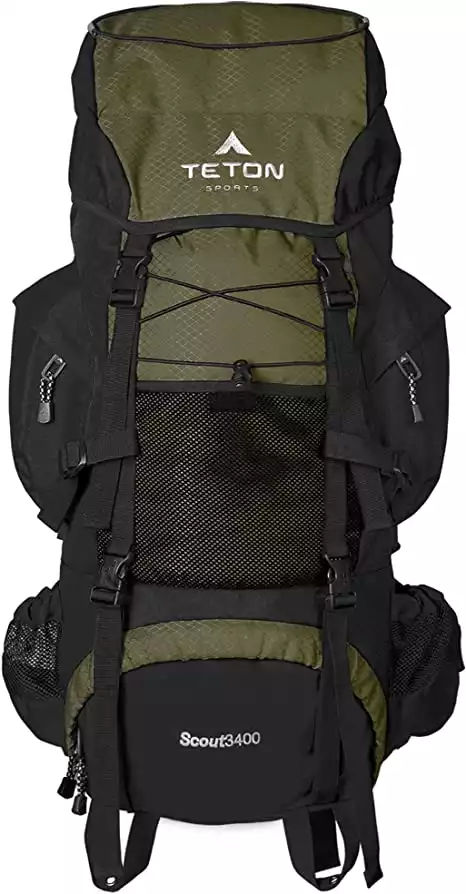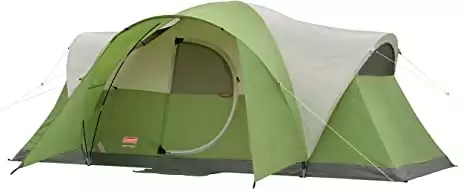Getting outside is one of the safer activities in today’s world, spending time camping or backpacking. You get to celebrate nature while potentially getting some face-to-face time with people you enjoy. If you are new to the scope of outdoor adventuring, it can feel a bit overwhelming to pick which activity is right for you.
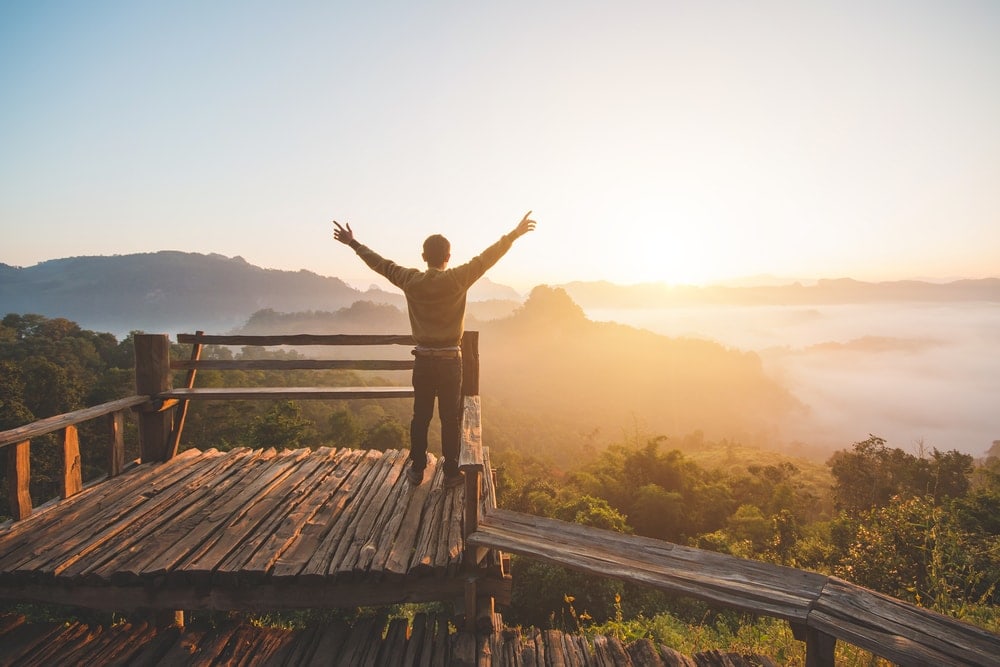
Although this is validated, the last thing that time enjoying nature should make you feel is more stressed.
We are here to give clarity to the two activities of camping vs. backpacking. We answer basic questions like what they are, then get into how they are different, and how to choose which one is right for you.
What is Camping?
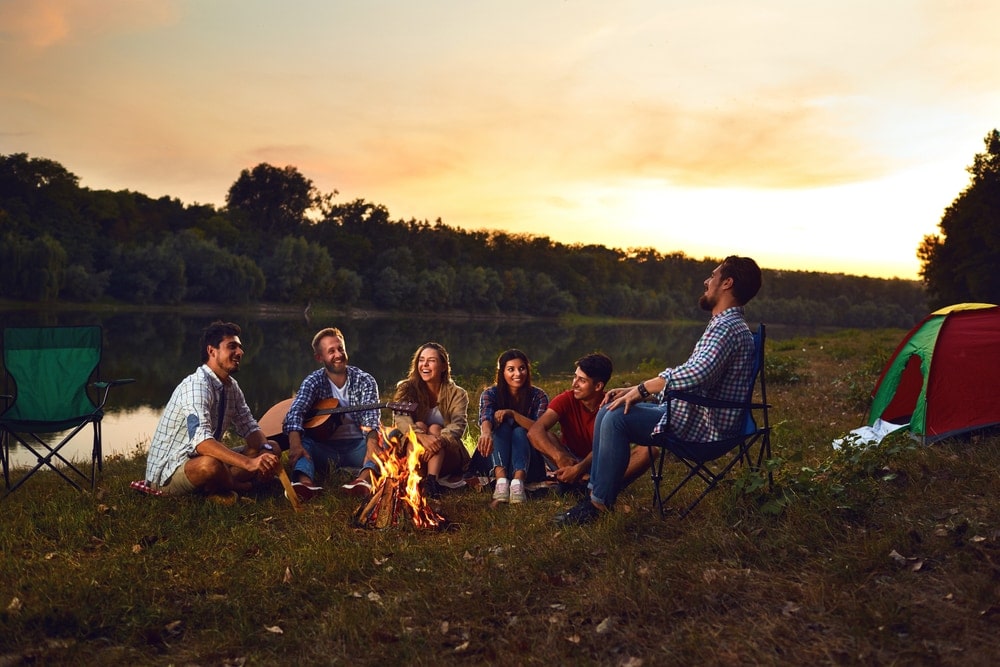
Camping is a vacation you take into nature, bringing a tent or a camper with you and choosing a spot outside to stay in overnight. The Encyclopedia Britannica defines it as a “recreational activity where participants take up temporary residence outdoors.”
The length of that temporary residence is up to you, as is exactly what you stay in while you are outside. The criteria are that you spend the night outside and that you are not in a technical built structure, like a cabin or a house.
Types of camping include car camping, staying in a camper, or pitching a tent on-site.
Car camping allows you to take with you everything that you want. You can pack coolers of supplies, comfortable sleeping bags, sleeping pads, campfire gear, your fishing supplies, bicycles, or haul along a boat. Many campgrounds allow parking your car right next to your site.
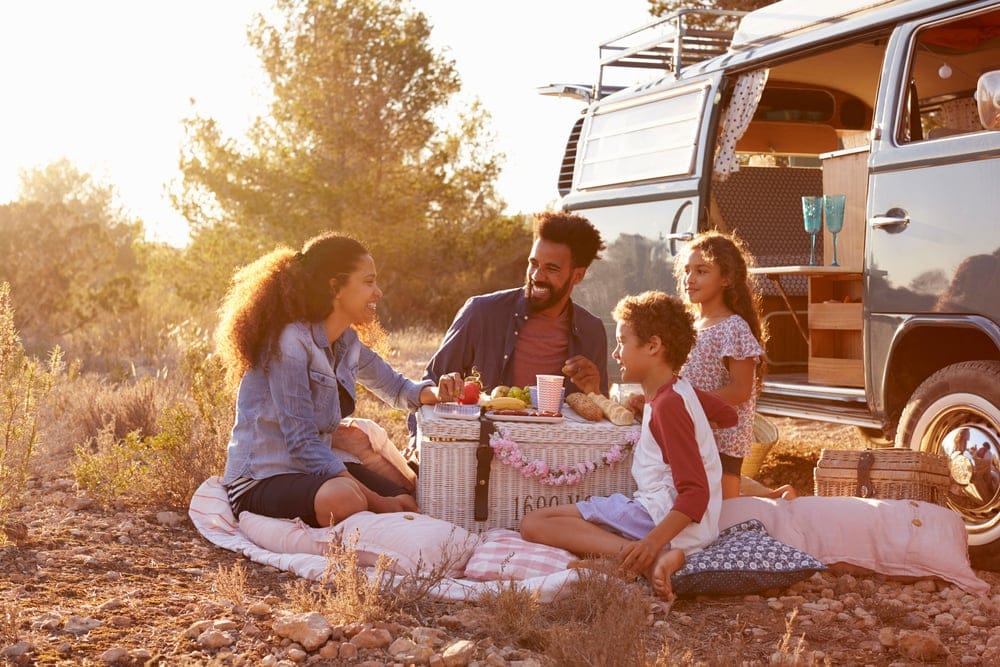
Some people also renovate their vehicle to stay in it, calling it a campervan or using a rooftop or a truck tent like the Napier Backroadz tent.
- 2-Person tent with a large interior area
- Easy and quick to set up
- Provides ultimate weather protection
Benefits of Camping
Some of the benefits of car camping include bringing as much stuff with you as you can fit into your car. It makes it easier to go camping with your family, especially if you have young children with you. You can also bring your dog to camping but make sure to follow our guide first so that you and your furry friend can have a relaxing, hassle-free experience.
Another big bonus is that you don’t have to consider the size and weight of most items. You can bring a larger tent with you so that you have plenty of room. Doing that also gives you shelter options in case you encounter poor weather on your trip.
Downsides of Camping
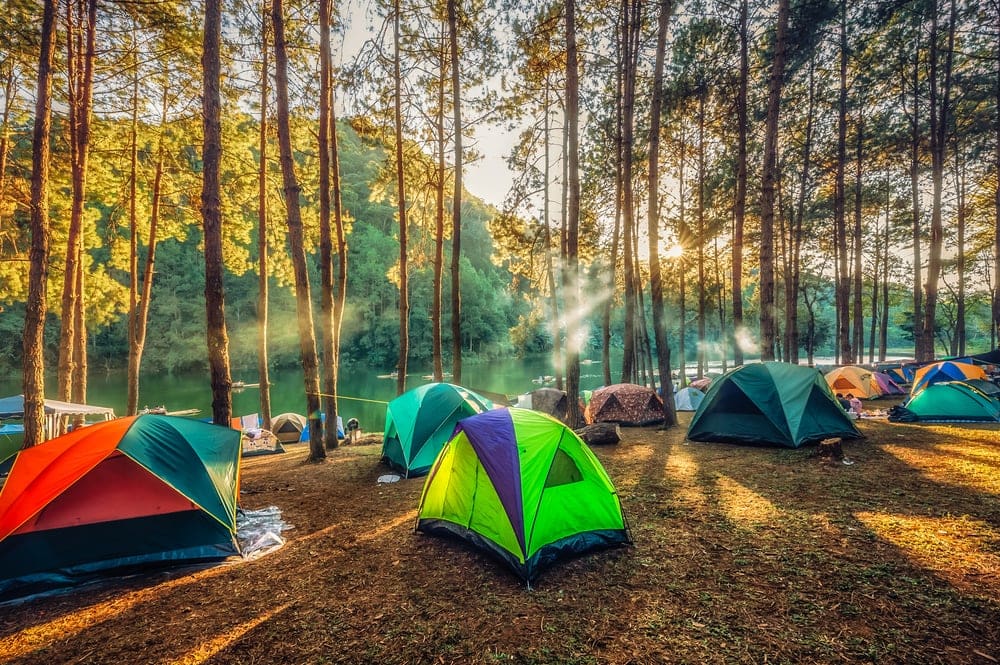
If you are looking for peace and quiet, you might have to look extra carefully for a more secluded campsite, but these areas might possibly have no hookups, There are options in America to use BLM land, but most laid out campsites will be busy during the peak of the summer season. That can mean lots of noise, and sometimes late into the night. If you are still into it, make a reservation ahead of time and if you’ll have a last-minute camping trip there are walk-up campsites you can go to.
What is Backpacking?
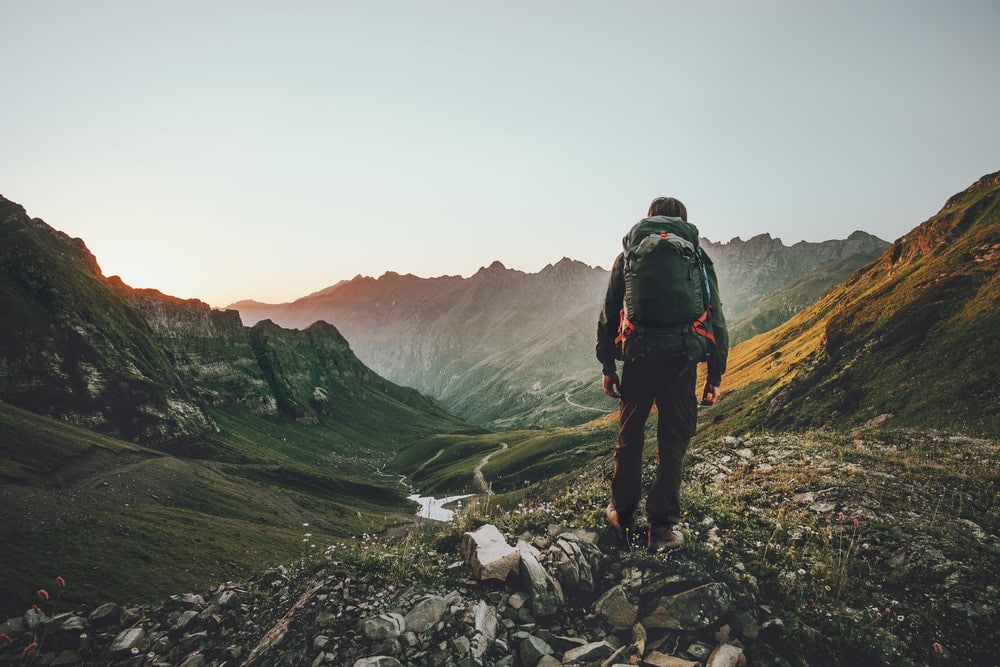
Backpacking does share a similarity with camping in that you stay overnight. Some people even consider a subcategory of camping. However, as these activities have developed and become popular, you will find people use the terms distinctly.
Backpacking involves a larger backpack, such as the TETON Sports Scout, loaded with the gear that you can carry. You hike with it to wherever you are going to set up for the night. The locations are often much more remote, where you will feel more secluded and separated from the general public.
A backpacking trip can last for as long as you want it to, heading out on a long hike for the day, staying at the end overnight, and returning the next morning. Trips that take months, such as the Appalachian Trail, also fall under the category of backpacking.
You pack differently for these kinds of trips, but the premise stays the same. Your backpack contains everything that you need. Check out our article about the essential gears you have to keep in your backpack if you ever feel lost about what to bring.
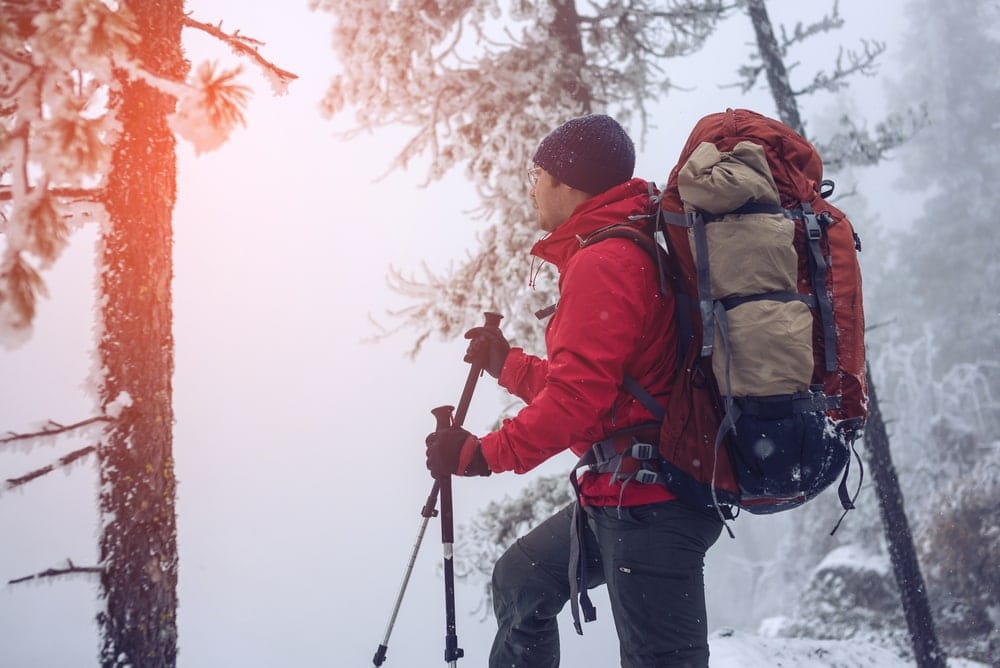
- Provides comfort with its padded features
- Large capacity and great for 2- 4 days
- Multiple gear compartments
Benefits of Backpacking
Often, backpacking is thought of as the more adventurous cousin of camping. It gives you the chance to explore the scenic backcountry of most of the USA National Parks or blaze new trails in the tundra of an unpopulated area.
Backpackers often get to take in a lot more peace in their spots of seclusion. They only have to interact with the people that have come with them. The feeling of getting back into nature tends to be much more distinctive on these trips.
Downsides of Backpacking
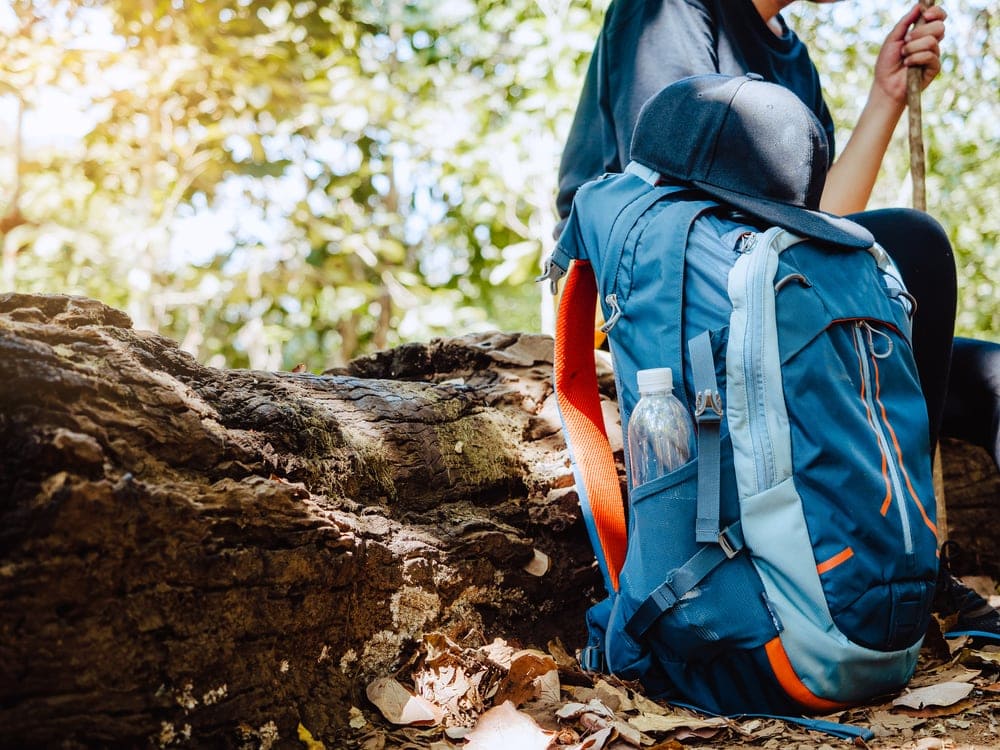
You have to limit yourself much more on backpacking trips since you only have a pack instead of an entire car to work with while choosing items.
It can also be much more difficult for young hikers to come with on backpacking trips. You have to keep them much shorter and use easier trails to get to where you want to stay if you want it to be more of a family matter.
How are Camping and Backpacking Different?
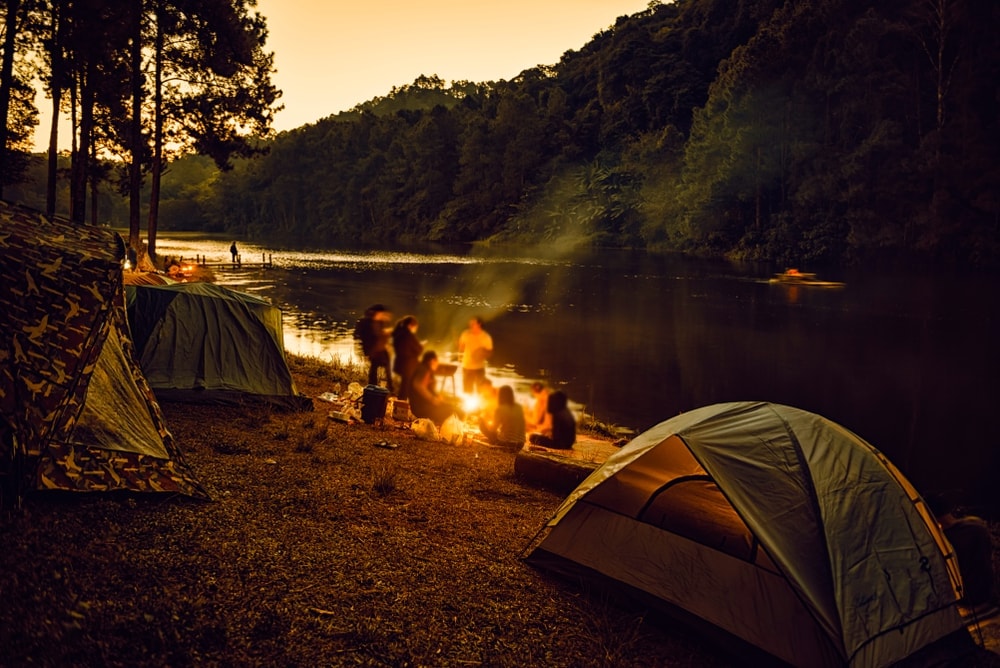
Camping is often car-centric, while backpacking is backpack-centric. You will not be able to fit everything that you can in a car into your backpack.
Sometimes, that can be freeing. Only bringing the essentials with you gives you a taste of minimalism and simplicity that your life might lack. It can also make packing choices much more of a challenge. Car camping allows you to bring a larger tent to make more room for larger groups of people as well, such as the Coleman 8-Person Tent.
- Easy and quick set up
- Spacious interior
- With included rainfly that offers extra weather protection
Although the range of time you spend outside is up to you, backpacking tends to include a lot more time in nature. There is nowhere else for you to go but outside, either you are in streaming water or bathing in the forest.
Another significant difference between the two is the level of required preparedness. If you have a car and realize that you have forgotten something, you can hop in and drive to the closest market.
On a backpacking trip, you better hope that it isn’t essential because you will probably not have that opportunity unless it is mapped onto your route.
You may also like: Bear Spray Vs Pepper Spray: What Should You Bring On Your Camping Trip?
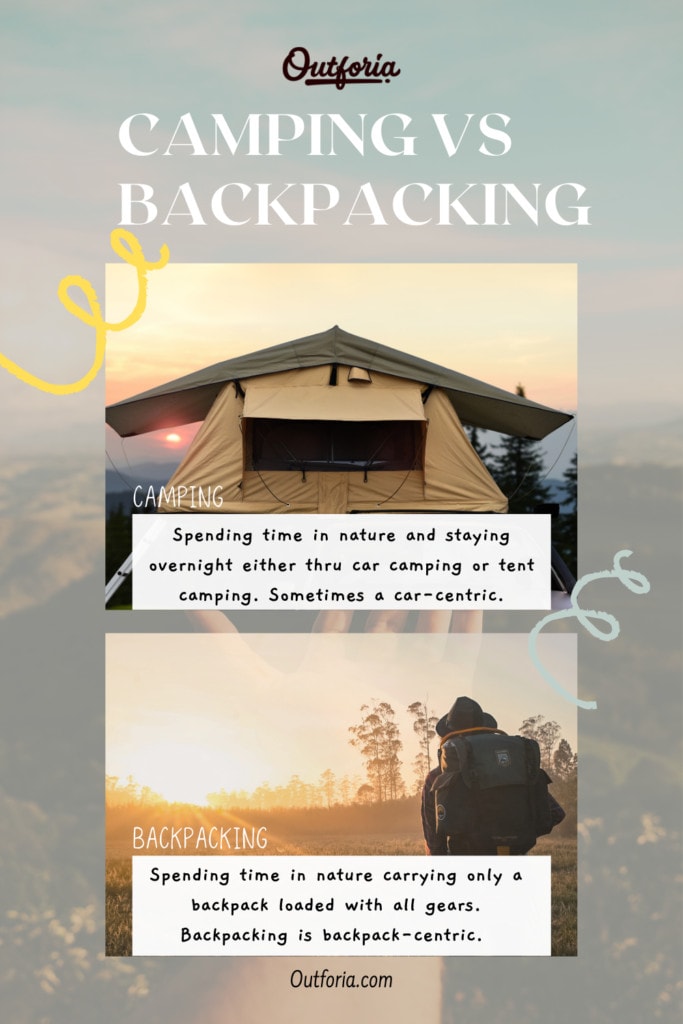
Which Activity is Ideal for You?
Depending on the kind of outdoor activities you are and how you enjoy adventuring, camping or backpacking might be a better choice. Also, there are different times when you might be able to do both.
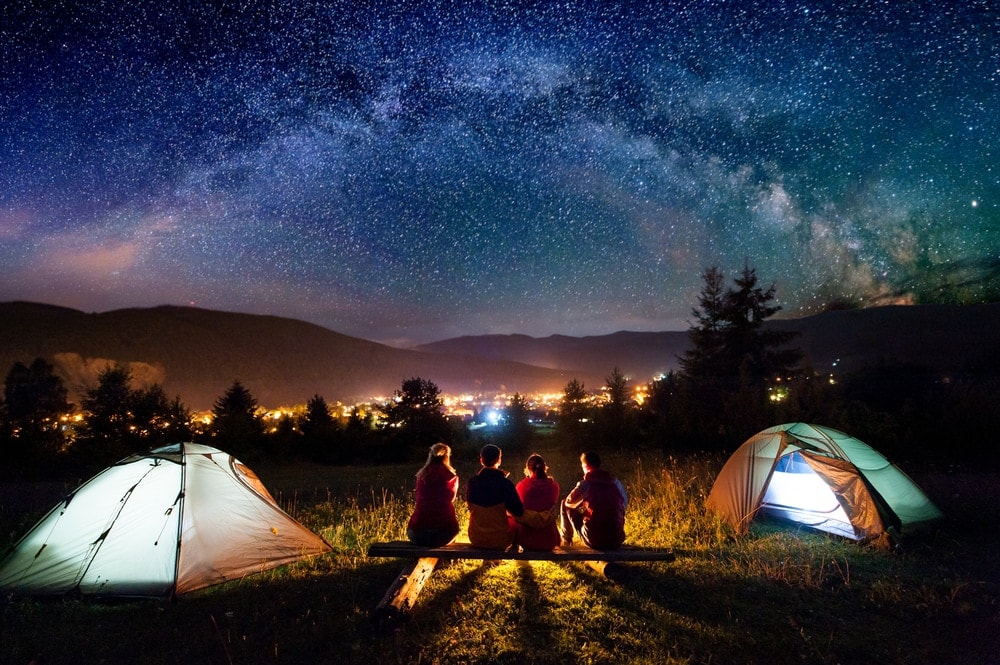
Camping
Camping is often better suited for people who want a quick trip away or going with a family of younger outdoorsmen. It is usually best since you can throw gear into the car and take off much faster. There is not as much pressure to plan and be thorough.
Camping is better for families since younger hikers tend to struggle to keep up on long trails, and they might not want to carry all of their supplies with them. Car camping is also best for people with precarious health issues or who haven’t tested their fitness.
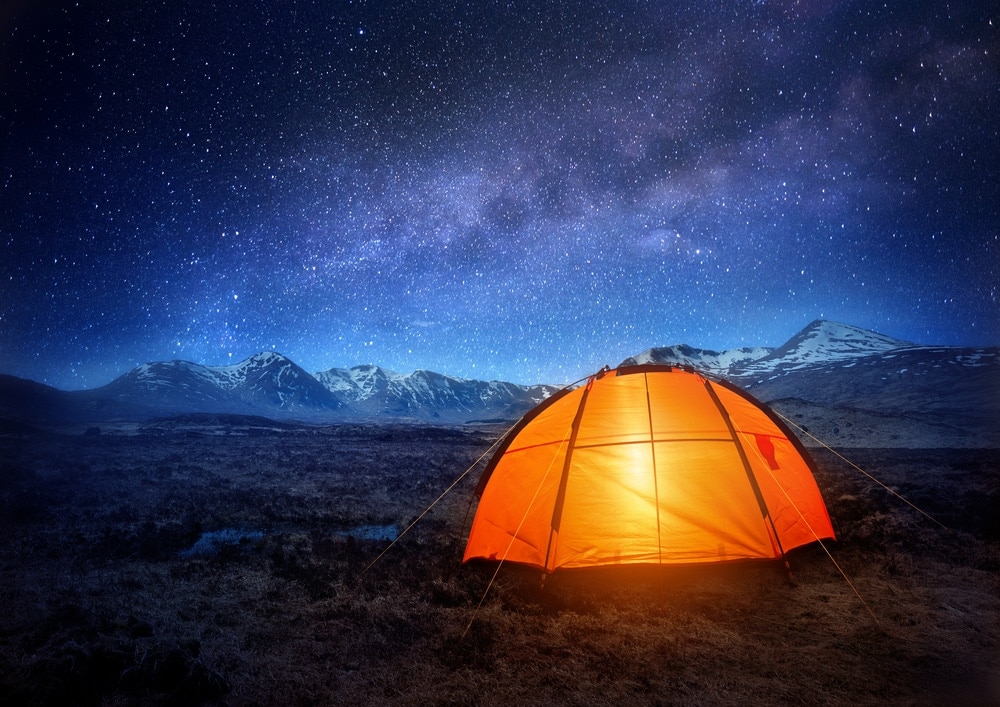
Backpacking
Backpacking is an excellent choice if you have time to prepare for your trip properly. Sometimes, this can involve physically training for it as much as packing appropriately. It is often done in small groups of two to four people and might last longer than the average camping trip.



